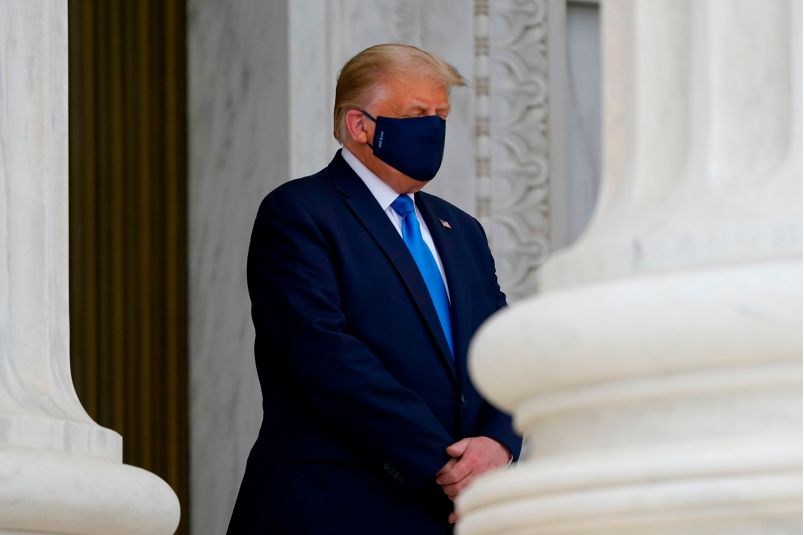Green Bay’s Bellin hospital spent most of the pandemic in sleepy readiness.
But over the past few weeks, that has ended. The hospital, one of four in the city of 100,000, has hit 94 percent capacity as of Thursday. Dr. Paul Casey, its ER director, took to Facebook in desperation last week.
“For the first time in the 16 years I have been medical director, our ED has had to place patients in the hallway,” Casey wrote. “This occurred twice in the last week.”
Cases of COVID-19 are surging across Wisconsin, as the state notches its highest-ever number of hospitalizations and positivity rates. Adding fuel to worry over community spread, President Trump is planning on holding rallies this weekend in two of the state’s hardest-hit areas: Green Bay and Lacrosse.
“It’s counterintuitive in the midst of this crisis to fly to one of the hotspots and get people together. That boggles the mind,” Casey told TPM in a phone call, adding that doctors at his hospital had discussed this morning whether to ask the Brown County executive to file an injunction halting the rally.
Green Bay Mayor Eric Genrich (D) told local media that “any massive gathering of people that occurs without social distancing, without masking has the possibility of being a super-spreader event.”
“I don’t think the president would want to be involved in something like that,” he added.
A White House spokesman referred TPM to a statement Thursday from Kayleigh McEnany during a press briefing doubling down on the plan to hold the rallies in the swing state.
“The President believes that people have a First Amendment right to political speech; he is having a rally, people can choose whether or not to come,” McEnany said.
The White House Coronavirus Task Force labeled Wisconsin generally and Green Bay specifically as a “red zone” in a recent document, indicating the highest-possible level of community spread.
Dr. Ashok Rai, head of Green Bay’s Prevea Health, told a local news channel Thursday morning that the state was considering setting up a field hospital in the city to add extra capacity.
“It’s really all of us having that conversation,” Rai said of hospitals in the area, saying that he had discussed it with the state’s Department of Health.
He added that though the local positivity rate, hovering at around 20 percent, was similar to what was observed in Dallas and Houston, the local situation was arguably worse due to lesser capacity.
“When you start to see 18, 20 percent positive in Brown County, and you look at the infrastructure that’s available and what it was designed to do, it wasn’t designed to take care of a situation like this,” Rai said. “So actually it scares me a little more that we could get overwhelmed faster.”
Casey, the emergency doctor, suggested that hospitals in the area were coming close to reaching that point.
“What we have seen is, over the past three weeks, a huge influx in patients to the point that for the first time in 16 years we’ve had to utilize hallway beds,” Casey said. “I never thought I’d have to do that at a small community hospital.”
Some Wisconsin hospitals have begun to transfer patients elsewhere. Though that has not yet happened at Bellin, Casey anticipated that it would become necessary soon.
“We’re able to handle our Emergency Department volume for now, but we’re gonna get there soon — we’re tight on beds,” he said.
President Trump is also set to visit La Crosse, where local statistics show that cases have been declining from a mid-September peak.
But public health officials for the city, whose hospitals receive patients from local rural areas, are bracing for President Trump’s arrival.
According to Paula Silha, a county public health information officer, the area is anticipating an increase anyway after some ignored the cancelation of a local Oktoberfest celebration and reveled anyway.
“It was against community advice, but we’re anticipating that we’ll have a rebound in our case numbers,” Silha told TPM.
She added that the Trump rally was “concerning,” and that there has been no communication from the Trump campaign about the rally.
“We would recommend that all events held in La Crosse county follow the guidance, which is that public gatherings of people of around 50 or more, not more than 25 percent of the capacity of a facility, should not be held,” she explained.






